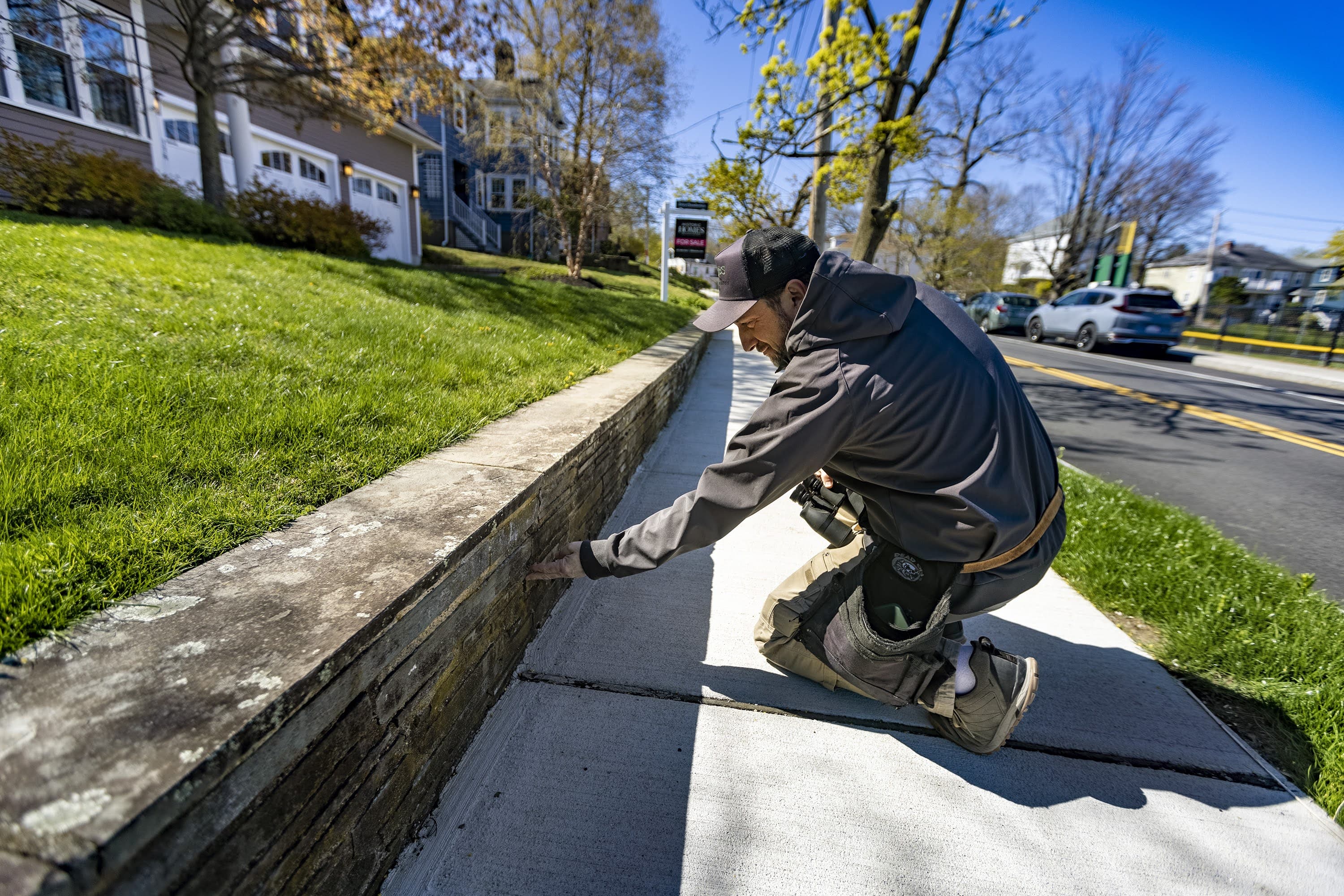
In a frenzied home-buying market, rushed and unregulated inspections are rising
Greater Boston’s red-hot real estate market has fueled a controversial, and potentially illegal, practice among the licensed professionals who inspect homes.
Inspectors say demand has surged for what's called a “soft” inspection or a “walk-and-talk.” These services are far less complete than traditional inspections, but some desperate home buyers are relying on them when sellers expect bids without conditions.
For a discounted fee, inspectors spend as little as 20 minutes at a home, examine just a few key areas, and produce no written report. Critics say these shortcuts leave consumers vulnerable during one of their most important financial decisions — and may violate state law.
“I just think it’s a recipe for disaster,” said Sean Rizzo, co-owner of Braintree-based Tiger Home Inspection. His company refuses to perform walk-and-talks, he said, because home buyers who use them have “no idea” what they’re purchasing.
“You’re going to move in and you’re going to say, ‘Holy moly, we spent $100,000 over asking, and I didn’t know I needed a new roof and my heating system failed in the first year,’ ” Rizzo said.
So far, state officials have stayed silent on a practice affecting buyers across the Boston metro region, and regulators charged with overseeing inspectors and standards have not addressed the trend.
Traditionally, an inspector spends two to four hours examining a property — from the foundation, plumbing and ventilation to the interior, insulation and electrical system. Prospective buyers pay $300 to upward of $900 for the service, depending on the size of the property, and receive a written report detailing its condition.
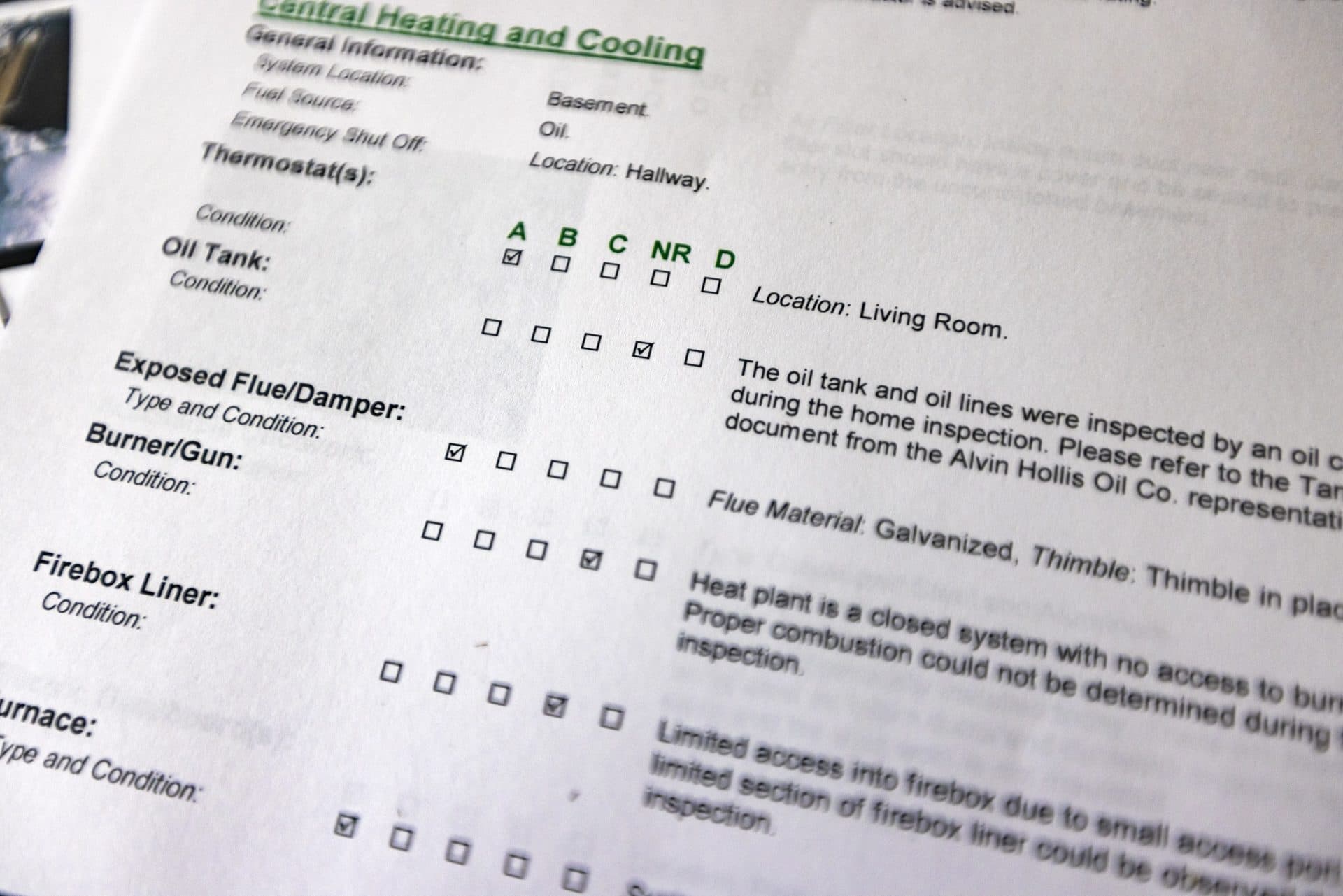
An inspection is meant to protect and inform buyers, and ideally, it gives them a chance to negotiate on price or ask the seller to fix any problems before the closing.
But in recent years, bidding contests have grown so fierce in the Boston metro area that buyers are waiving the safeguard of a full inspection, sometimes at the suggestion of real estate agents. Available homes for sale are at record lows; the supply in March was the month’s leanest in the 19 years since the Massachusetts Association of Realtors began tracking the data. And rising interest rates, which drive up mortgage costs, have so far only added to the rush to get deals done.
Buyers opting for abbreviated inspections have little to no recourse if an inspector misses a problem that’s discovered later — say, a water leak in a basement or a faulty heating system.
Some inspectors say they're doing short property reviews to stay in business. They believe they're helping buyers gain at least a little information about a property.
Advertisement
Alex Steinberg, owner of Cambridge-based JBS Home Inspections and president of the New England chapter of the American Society of Home Inspectors, said he has tried to find a compromise, offering clients a shorter version of his traditional inspection.
He said he spends at least 90 minutes at a house and focuses on the exterior, basement and attic — areas where the most serious problems can often be detected. He produces a simple report for buyers and urges them to get a full inspection after they buy the home.
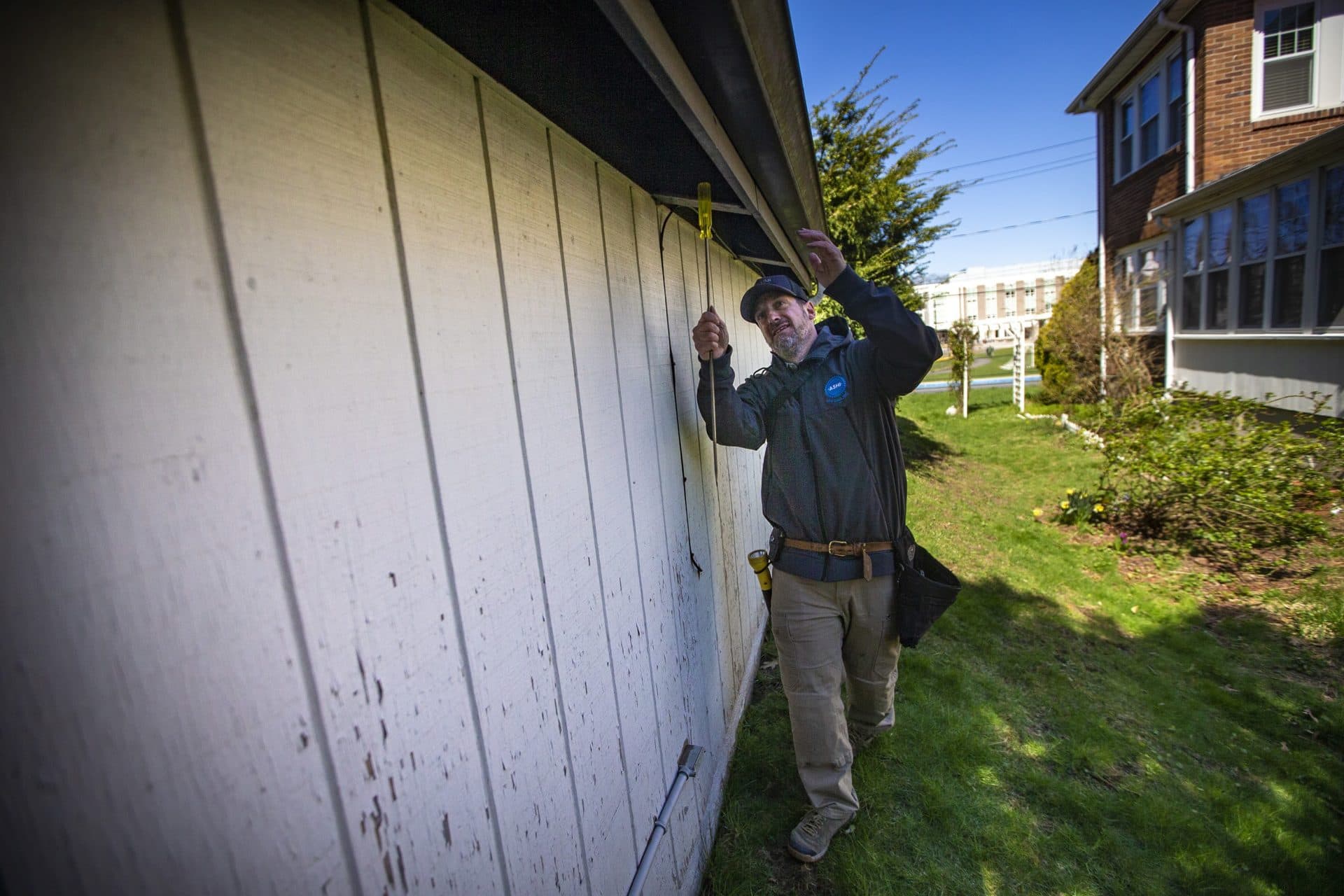
Steinberg believes this shorter service is legal, because it includes a report, as required by law. But he said he offers the service reluctantly.
“I don’t like these, and I sort of have to hold my nose, quite frankly,” he said. But at the same time, he feels he's giving clients "valuable knowledge so that they can go into a property with their eyes as open as possible."
There are no legal standards for walk-and-talks, and the leaders of two large national trade groups disagree on whether they violate Massachusetts law. Inspectors' legal liability in these shortened reviews also is unclear.
Amy Baxter, a new homeowner in Needham, said she and her fiance made a no-inspection offer on one house but were outbid. For the house they eventually bought, the seller accepted their offer, made on the condition of a full inspection. Good thing: Their inspector found a colony of termites eating away at a wall.
“They were swarming,” said Baxter, who works as a business consultant. “Can you imagine, had we not known about this, going in to buy it?”
The seller agreed to fix the infestation. That’s the kind of problem a walk-and-talk might have missed, said Jay Rizzo, co-owner of Tiger Home Inspection in Braintree.
Brief inspections give buyers “a false sense of security,” Rizzo said. “Someone’s going to get financially hurt, emotionally hurt,” he said, or worse, "physically hurt."
Tiger Home Inspection and at least two other inspection companies are demanding action by the state board that oversees the industry, the Board of Registration of Home Inspectors.
The unpaid, five-member board is an arm of the Division of Occupational Licensure, within the state’s Office of Consumer Affairs and Business Regulation. The board evaluates applications for licenses, considers complaints filed against inspectors, and carries out state rules for the industry. Meeting minutes from the past two years show fewer than five members have typically attended meetings.
Rizzo attended the board's virtual meeting in March and raised the walk-and-talk issue. He argued that they violate the state law regulating inspectors, a law specifically written to protect consumers.
“These walk-through chats, walk-and-talks, consultations … they’re taking advantage of the customer,” Rizzo told board members at the public meeting. He urged them to take a stance on whether the practice is legal.
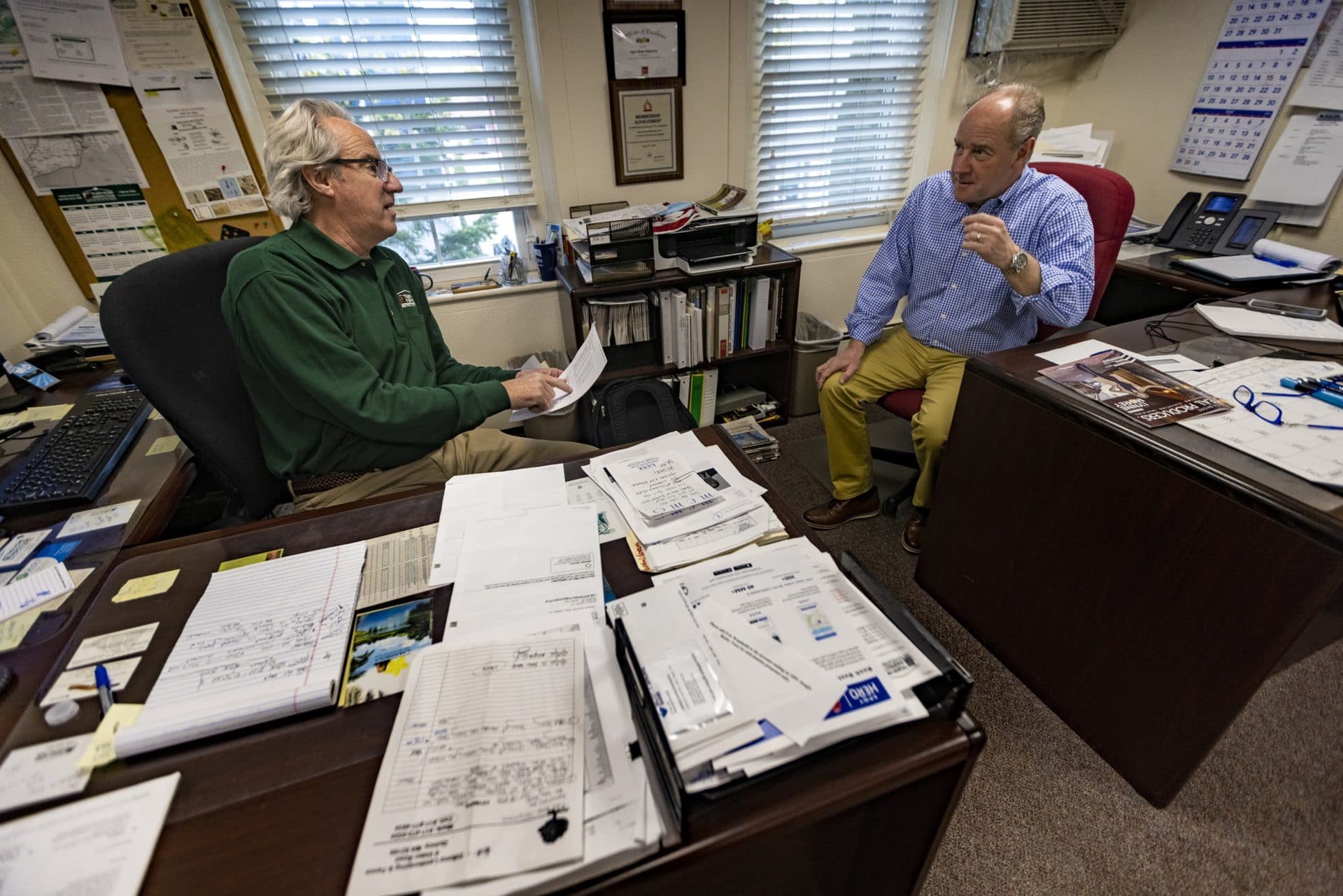
Two other inspectors echoed Rizzo’s concerns at the session, including Stephen Verbeek of Talon Home Inspection in Revere.
“This is a critical situation that I think most of you — some of you — are not aware of,” Verbeek said. “It needs to be discussed. And it needs to be discussed very soon.”
Executive Director Keith Gleason, who took the appointed office in January, told inspectors at the March virtual meeting there had been “some initial discussions” with the board’s legal counsel. He said board staff wanted to gather information so members could make an informed decision.
The board did not take up the issue that day or at its April meeting. The board declined interview requests from WBUR. The group is slated to discuss walk-and-talks at its May 11 meeting.
Massachusetts is one of 35 states that regulate the inspection industry, according to the American Society of Home Inspectors. Under Massachusetts law, inspectors must hold licenses, meet minimum benchmarks for education and training, and follow established standards.
The purpose of an inspection, according to the state law, is to provide buyers with a report that “forthrightly discloses the physical conditions" of a given list of home systems that are "readily accessible and observable.”
But the law leaves some grey area. It says inspections are not “exhaustive” and that inspectors are not required to report on every part of a home, including areas “specifically excluded” by the buyer.
Jameson Malgeri, owner of Another Level Inspection in Gloucester, estimates that the “majority of inspectors” now perform walk-and-talks. He said he understands why they do them, but refuses to offer the service himself. He said he worries the buyers relying on quick reviews are those who can least afford to forgo full inspections — the ones maxing out their budgets trying to buy a condo or house.
“Buyers who don’t have the resources to take on surprises are also the ones that are getting put in this position,” Malgeri said.
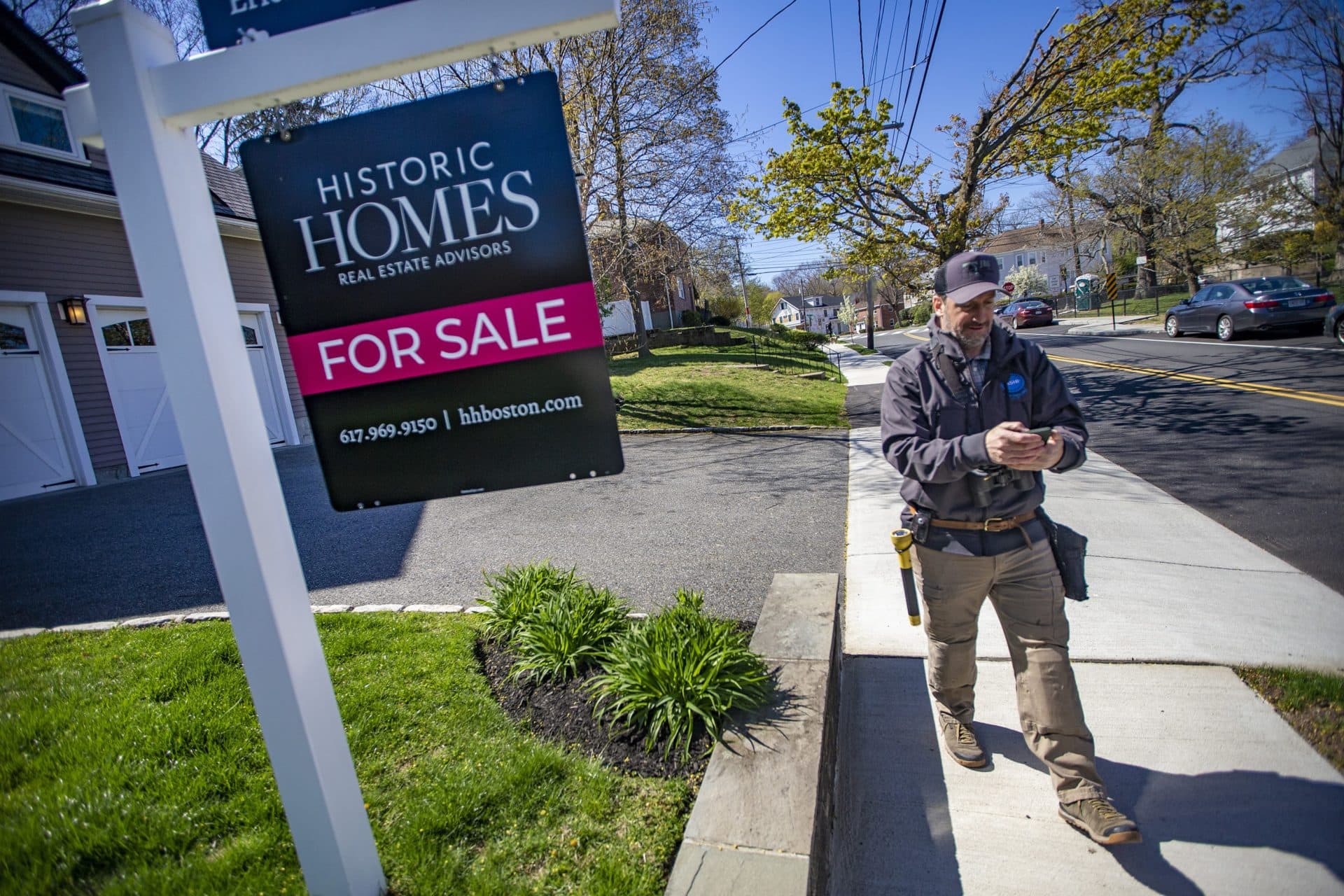
There’s another set of players at the center of the real estate market, profiting from the frenzied buying and selling: real estate agents.
Inspectors say real estate agents bear some responsibility for the decline in traditional inspections. Sellers' agents are in a position to encourage favoring offers from buyers who will waive inspections, and buy “as is.” And agents representing buyers advise clients on how high to go on price, who to hire for an inspection, and whether to forgo an inspection in order to compete for a property.
The official position of the Greater Boston Association of Realtors is that all buyers should get full inspections before closing, according to president Melvin Vieira Jr. But, he said, it’s not the job of realtors to police inspections.
If inspectors are willing to do quick evaluations, he said, “That’s on them more than us.”
Vieira also put the onus on buyers. He argued that people entering this competitive real estate arena must take responsibility for the risks they’re willing to accept. As an agent, he said, he advises clients to get a complete inspection, but he also has to inform them of all of their options, including waiving contingencies such as inspections and appraisals.
“It’s their decision, fully,” he said.
With no direction from the state, buyers and inspectors are largely on their own. Steinberg, the Cambridge inspector, argued that everyone connected to the real estate industry should be accountable to address this problem.
“Home inspectors and realtors and lawyers, and everyone who touches a real estate transaction, needs to be thinking about this,” Steinberg said. “It’s a sad state of affairs.”
This segment aired on May 10, 2022.
